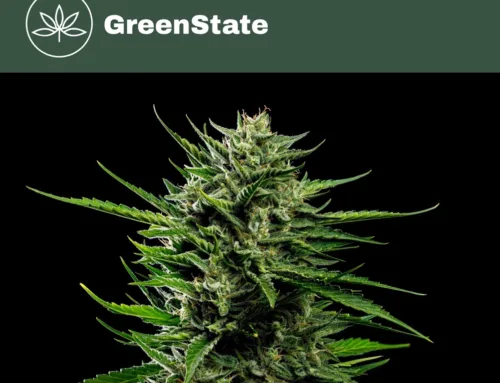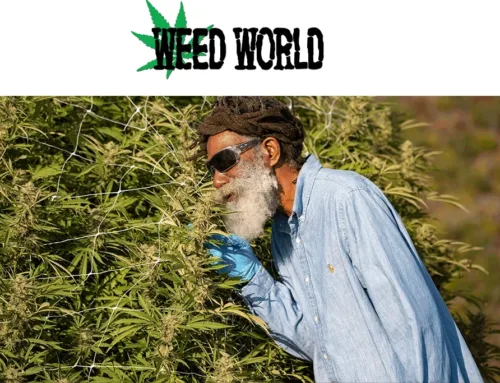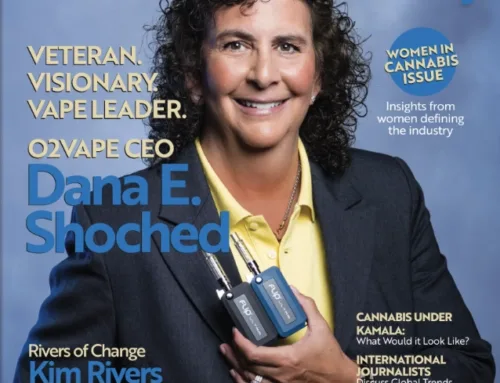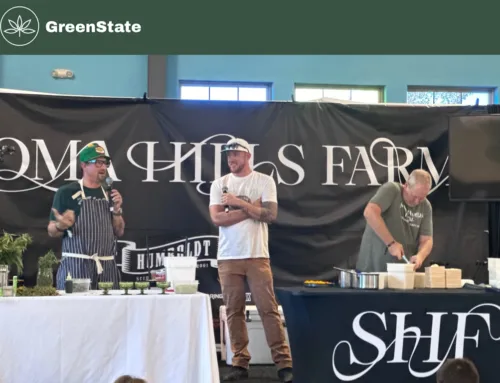Interview With a Breeder: Humboldt Seed Company – Seedsman

Interview With a Breeder: Humboldt Seed Company
Cannasseurs have long sought out and treasured cannabis genetics derived from Humboldt County – a county situated in the heart of Northern California’s legendary ‘Emerald Triangle’. For over 60 years this region has been one of the most important places in the world for cannabis breeding and propagation, and Humboldt cannabis is widely considered some of the finest in the world. The Humboldt Seed Company is one of the most reliable and environmentally responsible seed companies from this region. Their mission is to build upon the generations of cannabis breeding expertise that exists there to create the best possible cannabis seeds and clones, in the most sustainable way, to support home growers and commercial cultivators.
We sat down with the founder and co-founder of the Humboldt Seed Company, Nathaniel Pennington and Ben Lind, to learn about their journey with cannabis – the highs, the lows and what’s to come…
How did you both get into breeding cannabis?
Ben Lind, Co-Founder & CAO: I watched my aunt and uncle when I was growing up. They would hand me a bag with seeds, and I understood, even as a young child, that this tiny, hard little seed is so important. My aunt and uncle saved seeds out of necessity. Back then there was no easy access to clones like we have today. My aunt would hide the seeds in the Amish cornfields up in the Appalachian Mountains. She would tuck them in between the corn plants. It was a pretty cool way to grow up. Watching it all unfold during that time period.
I met Nat at the Forks of Salmon Harvest Bazaar up in Humboldt. We shared similar backgrounds and work ethics. I ended up helping him with a harvest, and we just hit it off. I have a degree in environmental geology and Nat’s background is in biology, so we really understood each other, and both have a very science-based approach to our work in breeding. I’ve done a lot of environmental work in Mongolia, and Nat is passionate about the environmental projects he’s been involved with up on the Klamath River in Humboldt County. We have in some sense had parallel experiences, in terms of learning from our elders and then applying modern science to both save and create unique genetics.

Nathaniel Penington, Founder & CEO: I’ve been breeding cannabis and working on river restoration in Humboldt County for the past 20 years. Prior to founding Humboldt Seed Company in 2001, I worked in Salmon genomics. This really gave me the background to understand the need for unbiased cannabis genomics research. It’s important to me to be able to provide cannabis genetics to the community that are strong, and that don’t require the use of pesticides or fungicides. Living on the river, and having a background in biology, it’s clear to me that the way forward is creating varietals that are suited to specific bioregions, and that are resilient enough to produce high yields with minimum inputs.
I enjoy being involved with the local community, and see that involvement as essential from a stewardship perspective. I’ve founded several non-profit organizations through the years, most recently Nature Rights Council, an environmental organization led by Humboldt’s indigenous youth. I also worked extensively on the negotiations that led to the agreement to remove four dams that blocked salmon runs on the Klamath River, thought to be the largest river restoration project in the world. Ben and I have similar backgrounds and both have a real reverence for the history that has brought the cannabis industry to where it is today. I think that, and our shared enthusiasm for using science-based methodologies to both preserve the heirloom strains and
create the strains of the future are what makes us a good team.
I think creative breeding is what will keep the craft market relevant and competitive in the future. Invigorating the craft market, and creating medicinally stable seed lines are two of our main objectives as we grow the company.
3- Vanilla Cream Pie : Super gassy and it tests really high. THC in the 20s. It checks all the boxes. Super dependable to grow and has that loud smell. The California large-scale growers will be excited about this one.
What would you consider a good entry level strain for someone to try, and why?
Apricot Papaya would be a nice and easy one to start out with, or maybe Blueberry Muffin . Apricot Papaya is light and fruity with an uplifting, euphoric kind of high. It’s great for being active, going for a hike or hanging out with friends. It’s approachable, easy to grow, and finishes early. Blueberry Muffin is on the other end of the spectrum with more sedative properties, better for watching a movie.
Can you explain genetic stability, how you achieve it and why it matters?
It’s important to have every plant be the same, and as a grower to know exactly what you’re getting. The marketplace is competitive these days. You can’t be ending up with a handful of plants that are nothing like what you expected, after putting in considerable time, money , and effort. We have a very clear methodical approach when breeding for a new varietal. We identify exactly what we want, and then set up strict criteria that are adhered to throughout the breeding process. We then employ a multi-year or grow cycle approach to stabilize the genetics.
There has been a discussion on our blog about genetic instability contributing towards the more negative or unwanted effects of cannabis such as anxiety and paranoia. What do you think about this?
Everyone’s experience is uniquely their own, but with that said we are definitely focused on creating strains that don’t illicit negative effects such as anxiety or paranoia. It’s really important to us to create something that is enjoyable, and to target the positive effects and minimize the negative effects. Careful, consistent breeding can address this problem. If you have instability you don’t know what you are going to get from plant to plant.
If you were to start breeding all over again knowing what you know now, how would you do things differently?
Ben Lind: I would have paid a lot more attention to the underdogs. The strains now lost and forgotten. I crossed paths with some truly unique genetics along the way, but was too young and inexperienced to realize it. If I could go back I would meticulously save them all! My uncle used to grow this variety that smelled like roses. It was very special. I wish I had that now. My aunt also had this one strain that was pure lemon & lime soda. It gave you a hilarious, silly feeling and was roughly 8% THC.






